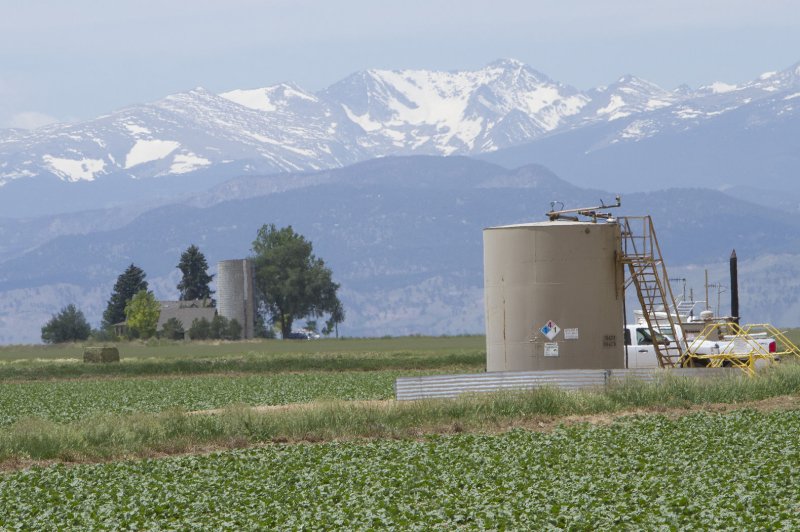U.S. shale player Bill Barrett Corp. sells off some of its holdings in order to focus more exclusively on one particular shale basin in Colorado. File photo by Gary C. Caskey/UPI |
License Photo
Nov. 21 (UPI) -- Shale player Bill Barrett Corp. said it was shedding acreage in the Uinta basin in Colorado, which one analyst said may be on par with a big Texas oil producer.
Bill Barrett said it was selling off its acreage in the Uinta shale in Colorado to an undisclosed buyer for about $110 million. The company said the acreage in question produced on average 2,300 barrels of oil equivalent per day in the third quarter, with about 90 percent of that coming as oil. The total reserve estimate for the company's acreage was 12 million barrels of oil equivalent.
President and CEO Scot Woodall said the sale puts his company squarely in the Denver-Julesburg basin in Colorado, streamlining operations behind just one shale area in the state.
"We have a top-tier oil position in the DJ basin," he said in a statement.
In announcing third quarter earnings, Bill Barrett raised its 2017 production guidance to between 6.9 million and 7.1 million barrels of oil equivalent.
Colorado is rich in shale oil reserves, supplying about 3 percent of total U.S. crude oil production in large part from its Niobrara and DJ basins. As a whole, Colorado produces around 374,000 barrels of oil per day.
Sandy Fielden, the director of oil and products research for Morningstar, said in an emailed research note that production from the Uinta shale increased 20 percent from July 2016 to August 2017, though output is limited by transportation constraints.
The pace of production growth, however, puts it just behind the Permian shale in Texas, one of the most productive in the country.
Demand for Uinta crude is somewhat limited to regional refineries, which means those companies still producing from there are "blessed with high prices," Fielden said.















